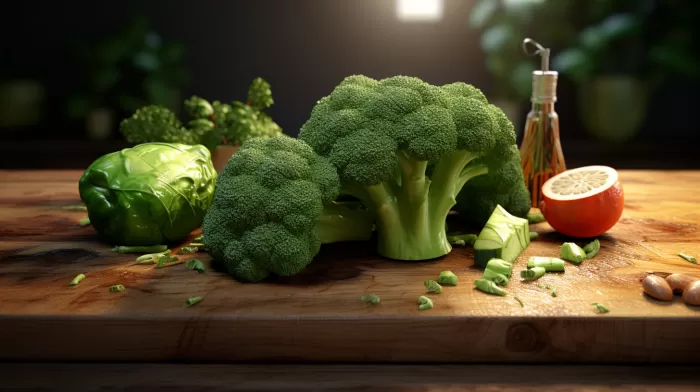Imagine suffering fewer bone fractures and having stronger bones just by incorporating more leafy greens like broccoli and spinach into your daily diet! This might sound too good to be true, but research shows these veggies are packed with an essential vitamin that encourages the deposit of two valuable proteins – osteocalcin and osteopontin – into your skeleton, resulting in increased bone strength.
Understanding Osteocalcin
Osteocalcin is an essential protein and structural component of your bones, playing a vital role in preventing bone fractures. However, for your body to benefit from this protein, it must be in its carboxylated form. Vitamin K, found chiefly in leafy greens such as broccoli and spinach, is responsible for the carboxylation of osteocalcin. This means that consuming more greens can potentially lead to stronger bones by promoting the deposit of beneficial proteins.
Osteopontin: The Partner in Bone Strength
Not only does osteocalcin contribute to the sturdiness of your bones, but it works in tandem with another protein, osteopontin. Research conducted at Polytechnic Institute reveals that these two essential proteins help form tiny stress-relief holes called dilatational bands when bones experience injury or impact. These bands function as a natural defense mechanism, preventing further damage to the surrounding bone. However, lacking osteopontin or osteocalcin in your body can result in weak bones that are more prone to fractures.
The Importance of Vitamin K
Not eating enough leafy greens like broccoli and spinach could mean your body lacks the necessary vitamin K to carboxylate and utilize osteocalcin. Studies have shown that an insufficient amount of vitamin K can lead to a higher risk of bone fractures, as well as other health issues, like heart difficulties and increased inflammation in the body (source).
Increasing your intake of vitamin K not only ensures you’re consuming sufficient amounts of this nutrient but also supports a healthy heart and overall well-being. Apart from leafy greens, other food sources rich in vitamin K include fish, meat, and eggs, providing you with a variety of delicious options to keep your bones and body in top shape.
Incorporating Leafy Greens into Your Diet
While eating plain broccoli or spinach might not be the most enticing option, it is easy to include these vegetables in your daily meals creatively. Here are just a few ideas to help you consume more leafy greens:
- Smoothies: Rather than reaching for sugar-laden beverages, sipping on a green smoothie packed with spinach or kale can be a refreshing and healthy way to enjoy your leafy greens. Add some fruit and yogurt, and you’ll have a balanced and delicious drink.
-
Omelette: Kick-off your mornings by adding some spinach to your omelette. Combining this nutrient-dense green with eggs is an extra boost of protein and a great way to incorporate leafy greens into your breakfast.
-
Soups and Stews: Throwing some broccoli or spinach into your favorite soups and stews is an effortless way of making your meal healthier and more delicious.
-
Salads: Be inventive with your salad and branch out from using only lettuce as your base. Instead, incorporate spinach or even a mixture of different greens. Adding a handful of broccoli florets can provide more substance and variety to your salad.
-
Roasted Veggies: Roasting veggies can bring out their natural sweetness. Drizzle some olive oil, toss in your favorite herbs and spices, and roast your broccoli in the oven for a crunchy, delicious, and vitamin K enriched side dish.
The Bottom Line
Taking care of your bones should never be a second thought, and with the help of leafy greens and the essential vitamin K, you can take steps towards keeping your bones resilient and fracture-resistant. Small changes to your daily diet and incorporating more broccoli and spinach can leave a lasting impact on your overall bone health and quality of life.
Take action now by enjoying the benefits of these nutrient-dense, leafy greens and give your bones the protection and support they deserve. Regularly consuming these vegetables will not only make it easier for your body to deposit osteocalcin and osteopontin into your skeleton, but it will also contribute to your overall well-being. Through small daily changes, enjoy a future of pain-free movement and reduced risk of bone fracture – live a healthier, happier life!



